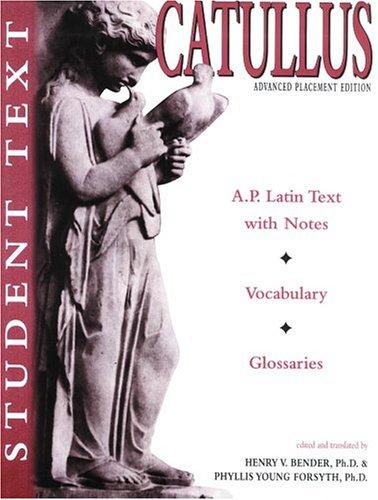Gaius Valerius Catullus (Classical Latin: [ˈɡaːiʊs waˈɫɛriʊs kaˈtʊlːʊs]; c. 84 – c. 54 BCE), often referred to simply as Catullus (kə-TUL-əs), was a Latin poet of the late Roman Republic who wrote chiefly in the neoteric style of poetry, focusing on personal life rather than classical heroes. His surviving works are still read widely and continue to influence poetry and other forms of art. Catullus's poems were widely appreciated by contemporary poets, significantly influencing Ovid and Virgil, among others. After his rediscovery in the Late Middle Ages, Catullus again found admirers such as Petrarch. The explicit sexual imagery which he uses in some of his poems has shocked many readers. Yet, at many instruction levels, Catullus is considered a resource for teachers of Latin.Catullus' style is highly personal, humorous, and emotional; he frequently uses hyperbole, anaphora, alliteration, and diminutives. In 25 of his poems he mentions his devotion to a woman he refers to as "Lesbia", who is widely believed to have been the Roman aristocrat Clodia Metelli. One of the most famous of his poems is his 5th, which is often recognized for its passionate language and opening line: "Vivamus, mea Lesbia, atque amemus" ("Let us live, my Lesbia, …
Gaius Valerius Catullus
Author details
- Born:
- June 15, 1984
- Died:
- June 15, 2054
External links
Gaius Valerius Catullus (Classical Latin: [ˈɡaːiʊs waˈɫɛriʊs kaˈtʊlːʊs]; c. 84 – c. 54 BCE), often referred to simply as Catullus (kə-TUL-əs), was a Latin poet of the late Roman Republic who wrote chiefly in the neoteric style of poetry, focusing on personal life rather than classical heroes. His surviving works are still read widely and continue to influence poetry and other forms of art. Catullus's poems were widely appreciated by contemporary poets, significantly influencing Ovid and Virgil, among others. After his rediscovery in the Late Middle Ages, Catullus again found admirers such as Petrarch. The explicit sexual imagery which he uses in some of his poems has shocked many readers. Yet, at many instruction levels, Catullus is considered a resource for teachers of Latin.Catullus' style is highly personal, humorous, and emotional; he frequently uses hyperbole, anaphora, alliteration, and diminutives. In 25 of his poems he mentions his devotion to a woman he refers to as "Lesbia", who is widely believed to have been the Roman aristocrat Clodia Metelli. One of the most famous of his poems is his 5th, which is often recognized for its passionate language and opening line: "Vivamus, mea Lesbia, atque amemus" ("Let us live, my Lesbia, and let us love").

